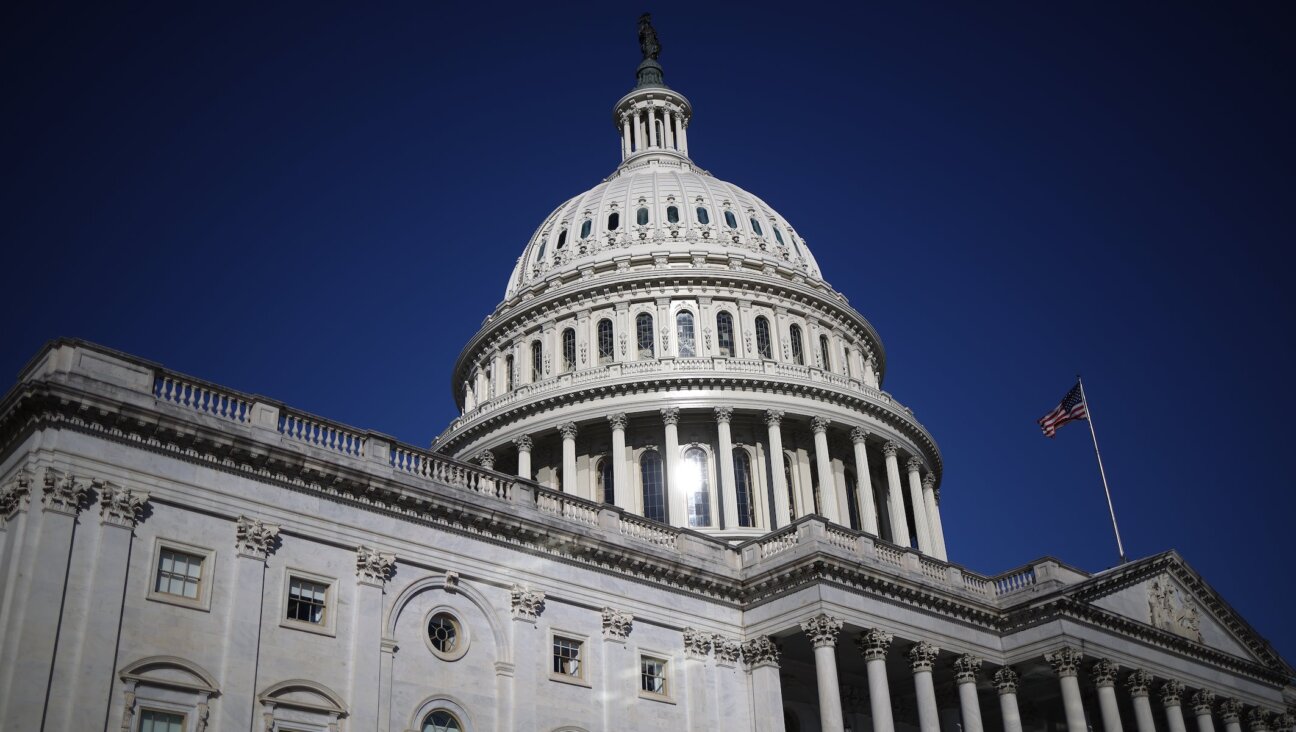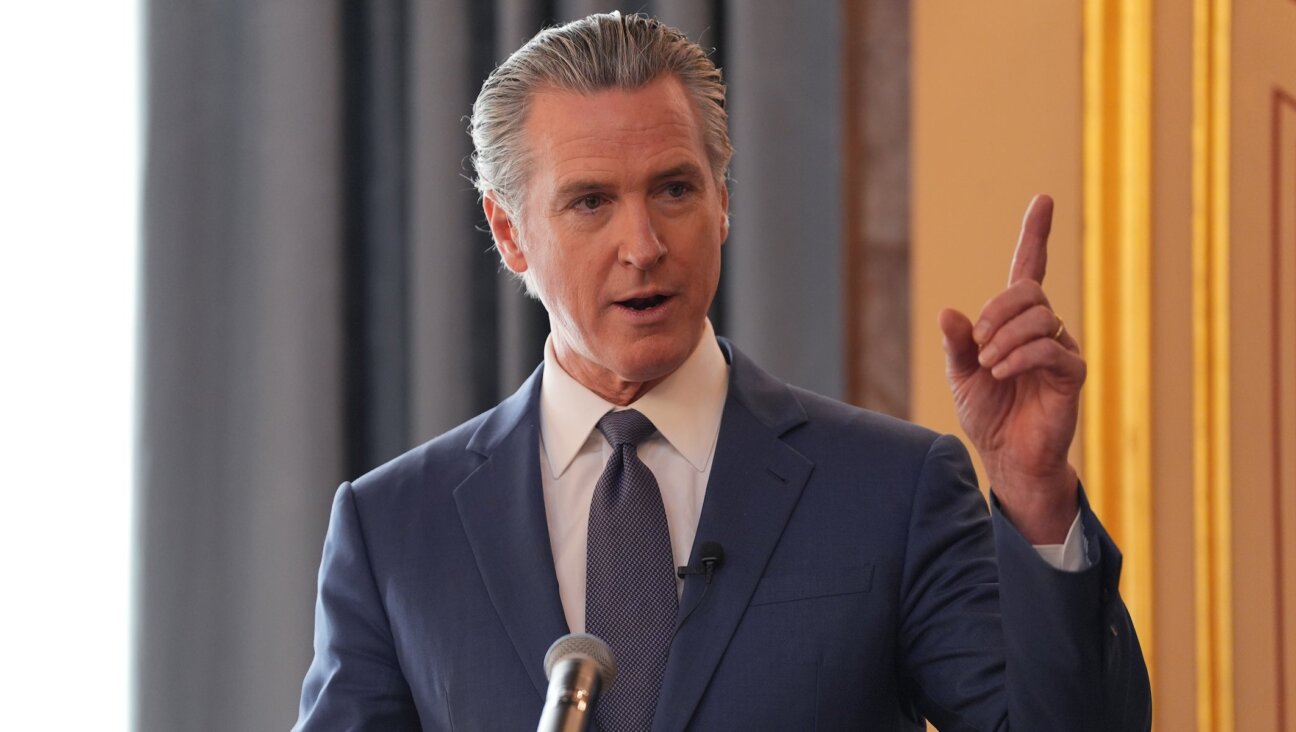We still have time to resist Amy Coney Barrett’s confirmation — and we must

Amy Coney Barrett on September 29, 2020. Image by Getty Images
Like many of my fellow Reform rabbis, I am deeply concerned about what the pending confirmation of Judge Amy Coney Barrett to the Supreme Court might mean for our country.
Barrett has historically stood against many of the fundamental rights and freedoms that the Reform Movement has supported for decades. Among those, and at the heart of our opposition to her nomination, is a broad reading of the concept of religious liberty. As Reform Jews, we believe that religious liberty consists of both the freedom of and the freedom from religion, meaning that while the government must not be able to restrict Americans from freely exercising their faith, individuals, employers and governments must also be prevented from using religious beliefs as a pretext to discriminate against others.
In contrast, Judge Barrett’s “originalist” philosophy tends to focus on only the first part of the equation. She favors legal opinions that would help steer the Supreme Court toward prioritizing the freedom to practice religion over similary fundamental rights; with her, the court’s conservative faction may well roll back the anti-discrimination rights of LGBTQ Americans, or even rescind its previous decision to declare same-sex marriage constitutional.
Barrett’s positions on LGBTQ issues are far from the only troubling aspect of her record. Her unambiguous history of opposing and condemning Roe v. Wade is out of step with the beliefs of the overwhelming majority of Jewish Americans, who support abortion being legal in all or most cases. Our community firmly believes that abortion is a personal and private healthcare decision for women to make independently and without shame. If confirmed to the Supreme Court, Barrett’s views could lead to devastating infringements on women’s right to make decisions about their own health and bodies, and at worst, the re-criminalization of abortion.
As a Supreme Court Justice, Barrett would also threaten Americans’ health in ways that extend far beyond the issues of abortion and reproductive rights. She could be the lynchpin vote to overturn the Affordable Care Act when the Supreme Court hears a case challenging the legislation a week after the election. If that case is decided in favor of the Republican state attorneys general challenging the law, tens of millions of people will lose their health insurance. Beyond health care, on issues ranging from gun rights to racial discrimination, Judge Barrett’s views are wildly out of step not just with those of the vast majority of American Jewish communities, but also those of the majority of the American people.
The rushed nature of Barrett’s confirmation process, which is occurring in the middle of an election, cheered on by a president who has openly said he hopes Barrett’s vote will help secure him a second term in office amid any election-related legal disputes, are as concerning as any of her positions on political issues. Jewish Americans believe strongly in the promise of American democracy, and the prospect of the Supreme Court being corrupted for such blatantly partisan purposes is profoundly distressing. The Barrett confirmation risks leaving a decades-long stain on the legitimacy of our democratic institutions.
Given the attention paid to Judge Barrett’s religious beliefs during this confirmation process, some may question if Jewish leaders should openly oppose her, as our views on political issues also are undoubtedly influenced by our faith. But the Reform movement’s opposition to Judge Barrett’s confirmation is a response not to her personal religious views, but rather to her judicial track record. Our movement believes in a world in which all people can live lives of dignity and freedom. If confirmed to the Supreme Court, Barrett would represent a clear threat to that vision. Her judicial track record indicates that she stands in opposition to our fundamental values. That is why the Central Conference of American Rabbis, which I lead and which has rarely weighed in on previous judicial nominations, made the decision to formally oppose her confirmation.
As it stands, Barrett’s ascension to the Supreme Court seems all but assured. Even so, we must not rest. It remains crucially important for Jews to speak up loudly against Barrett’s nomination between now and the final Senate floor vote on Oct. 26. By contacting our senators and demanding that they vote ‘No’ on her confirmation, we demonstrate widespread support for an agenda that reflects our values — values that are shared by the majority of Americans.
I urge all Jewish Americans who believe in reproductive rights, access to health care, LGBTQ rights and American democracy itself to hold their elected officials accountable for their votes on this historically important and extremely dangerous nomination.
Rabbi Hara Person is the Chief Executive of Central Conference of American Rabbis

















